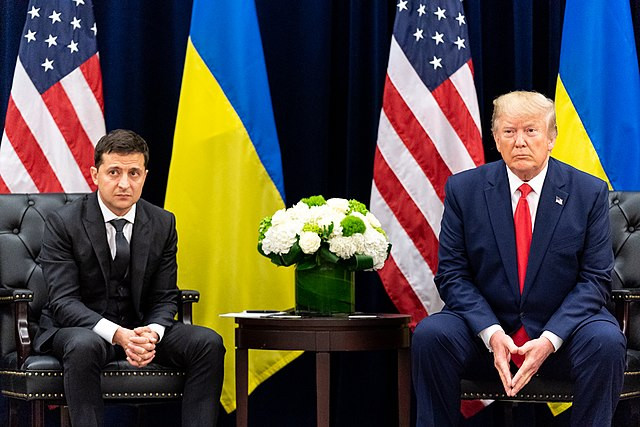President Donald Trump will meet with Ukrainian President Volodymyr Zelenskyy at the White House on Friday to finalize an agreement granting the U.S. a stake in Ukraine's rare-earth minerals. The meeting follows the United States' direct talks with Russia aimed at negotiating an end to the ongoing war, a process Zelenskyy has insisted on joining but has largely been excluded from.
Trump has positioned the minerals deal as a form of reimbursement for the nearly $66 billion in military aid provided to Ukraine since Russia's invasion in 2022. "We're going to be signing an agreement, which will be a very big agreement," Trump said Wednesday. He argued that the deal would form the basis for a long-term economic partnership between Washington and Kyiv, aiding Ukraine's post-war reconstruction.
Ukraine possesses significant deposits of lithium, graphite, and titanium-materials critical for high-tech industries. However, U.S. officials noted that many of these reserves are located in areas currently occupied by Russian forces, raising doubts over their immediate accessibility.
Trump has previously expressed skepticism toward U.S. support for Ukraine, arguing that Zelenskyy benefited unfairly from American aid. After the Ukrainian president criticized Trump for being influenced by Russian "disinformation," Trump responded by calling him "a dictator without elections." He later told Fox News that Zelenskyy was an obstacle to peace negotiations, saying, "I don't think he's very important to be at meetings, to be honest with you. He's been there for three years. He makes it very hard to make deals."
Despite his past criticisms, Trump struck a more conciliatory tone during a joint press conference with British Prime Minister Keir Starmer on Thursday. "We're going to get along really well," he said. "I have a lot of respect for him. We've given him a lot of equipment and a lot of money, but they have fought very bravely, no matter how you figure."
Zelenskyy had previously rejected an initial U.S. offer regarding Ukraine's rare-earth minerals, arguing it lacked sufficient security guarantees. Russia has reportedly proposed a similar arrangement that would give the U.S. access to mineral-rich regions under Russian control, an idea that has drawn interest from both Trump and Russian President Vladimir Putin.
Skepticism about the feasibility of the minerals deal remains high. The Center for Strategic and International Studies noted that much of Ukraine's mineral wealth remains inadequately surveyed, with limited data on whether these reserves are commercially viable. "There is very limited data on whether Ukraine's rare earth elements and other strategic materials are commercially viable to mine," CSIS researchers wrote in a recent analysis.
Security risks present another major obstacle. Benchmark Minerals Intelligence analyst George Ingall stated that "up to 40% of Ukraine's overall critical mineral deposits are in areas currently under Russian occupation," making extraction uncertain.
Beyond extraction, processing and refining pose additional challenges. Reed Blakemore of the Atlantic Council's Global Energy Center pointed out that while securing access to raw materials is important, the U.S. remains reliant on China for refining. "For a deal to really de-risk the U.S. minerals supply chain, more infrastructure is likely needed to ensure that the newly acquired mineral ores don't flow toward Beijing," he said.
European leaders have voiced concerns over the ongoing negotiations. Macron, following his Monday meeting with Trump, emphasized that any peace agreement must include "strong security guarantees for Ukraine." Starmer, speaking alongside Trump on Thursday, warned that "peace can't be one that rewards the aggressor."





